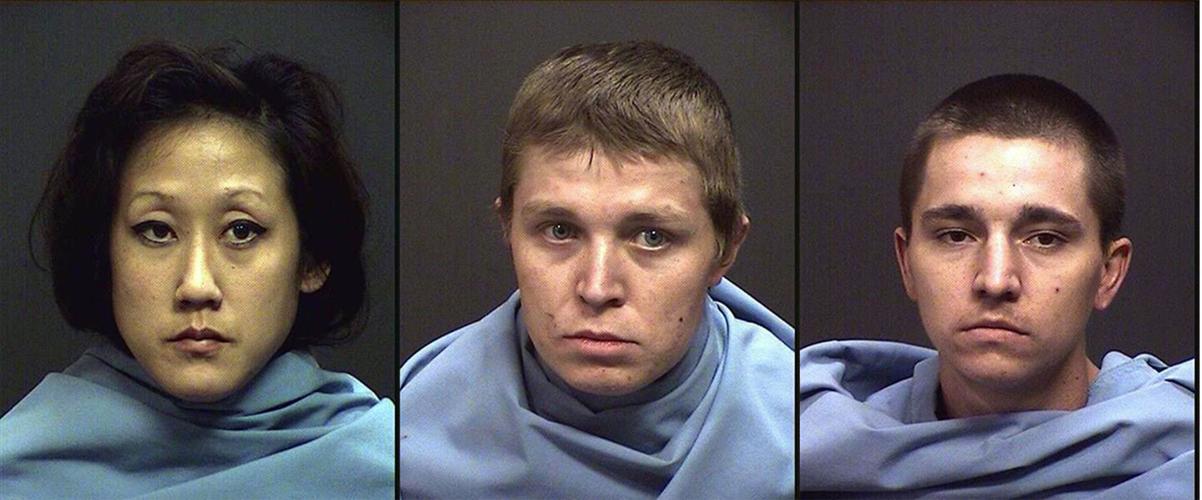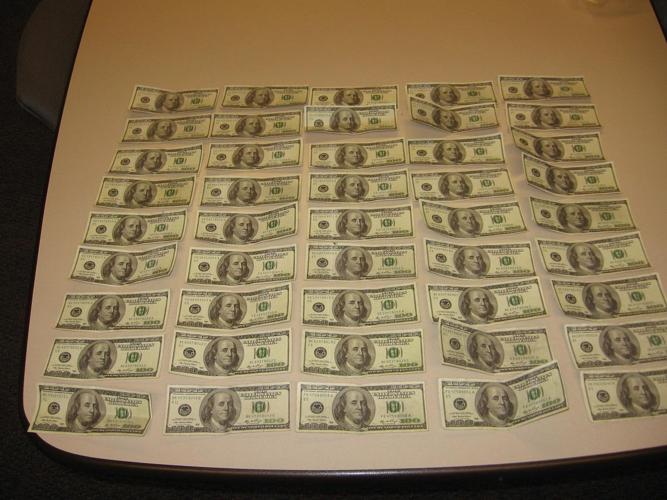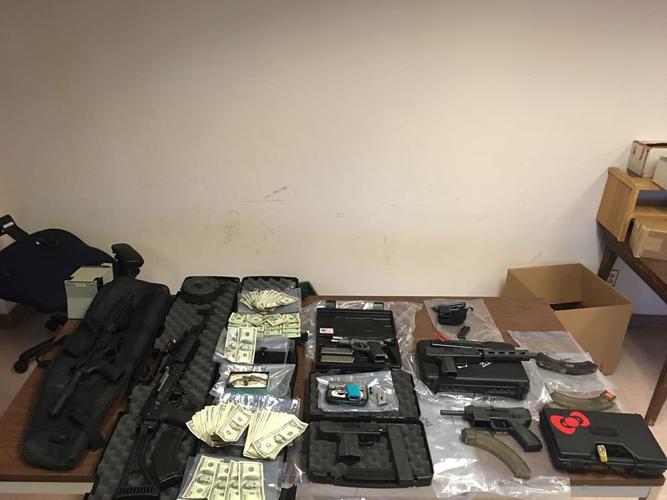Tucson police said they broke up a crime ring that produced “sophisticated” counterfeit money that couldn’t be detected by businesses.
Three people were arrested and guns, fake bills, drugs and printing equipment were seized in the operation, police said.
“The operation was more sophisticated than just a color printer and copier,” said Sgt. Rick Radinsky, of TPD’s financial crimes unit.
While it’s not uncommon for local law enforcement to find counterfeit bills circulating in the community, it is uncommon to find the source, said Officer Dan Lucas, a Tucson Police Department spokesman.
In November, Tucson police became aware of a pattern of counterfeit $100 bills being passed at local retailers and began gathering information from the stores, according to a post on Tucson Police Department’s Facebook page.
Detectives with the financial crimes unit began a joint investigation with the U.S. Secret Service, and were able to identify two men suspected of passing the fake bills as Cody Anderson, 19, and Joshua Blake, 21.
On Feb. 17, a police SWAT team served a search warrant on their home in the area of East Pima Street and North Rosemont Boulevard, as information about the suspects indicated both men were armed and had previously proven to be dangerous, the Facebook post said.
Anderson was arrested without incident inside the residence, where detectives located firearms, counterfeit money, heroin, cocaine, crystal meth and drug paraphernalia.
Officers arrested Blake in the area of East Grant Road and North Craycroft Road shortly after the warrant was served.
He was carrying a firearm and more than 40 counterfeit $100 bills, according to police.
Detectives continued the investigation and located the suspected manufacturer of the counterfeit bills in the 4800 block of East Pima Street, where Krista Blanchard, 34, was arrested. A variety of firearms and the equipment used to manufacture the counterfeit bills were found inside the residence.
“She used a combination of modern technology and older techniques,” Radinsky said.
The money was also passing review when clerks at the stores where the bills were used checked them for indications of forgery, Radinsky said.
Real U.S. $100 bills have anti-forgery measures built into them, including a security strip, a 3-D ribbon, color-changing ink and a watermark.
Money is printed on specific paper that only the Federal Reserve has, and there’s no indication that Blanchard had acquired that type of paper, he said.
Detectives also learned of counterfeit bills that have been used outside of Tucson city limits, and the Secret Service is working with TPD to figure out where else they were passed, he said.
“We’re confident that the printing operation is shut down in Tucson,” Radinsky said.






